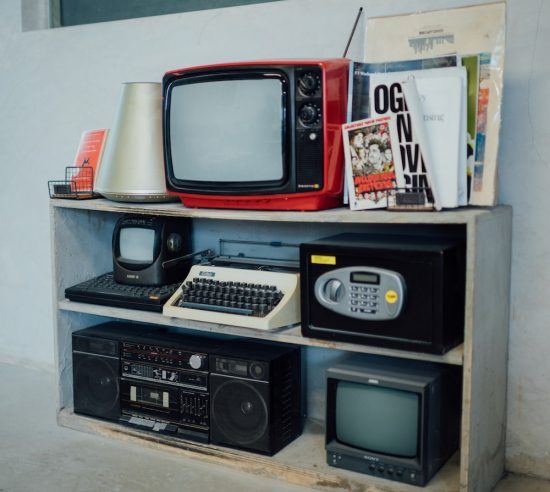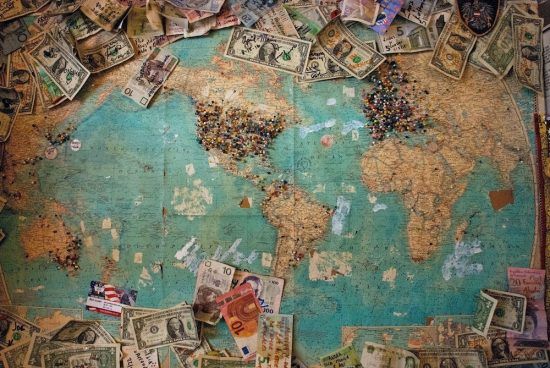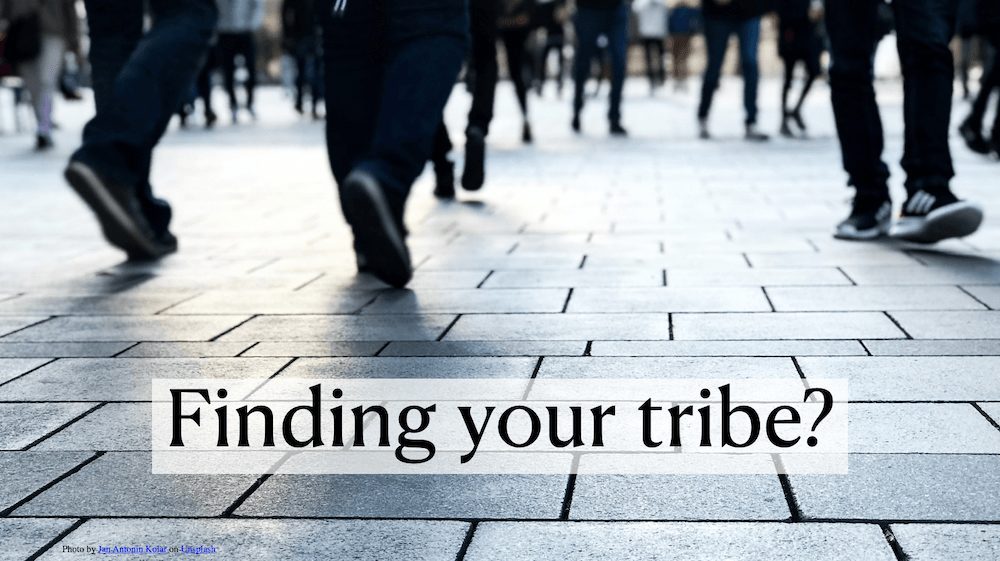To be labelled as tribal these days is frequently considered a bad thing. Tribalism has negative connotations. At a minimum, it’s associated with driving a gap between “us and them” and often suggests some form of sense of superiority. At its worst, it’s downright primitive, exclusionary and possibly violent. Yet, it is part of the human condition to want to belong to a tribe. As Judith Glaser wrote in her book, Conversational Intelligence, “that feeling of belonging is critical to mental health. Human beings are tribal. Being a part of the tribe is essential for our mental health.” During the Covid-19 crisis we’ve seen a cleaving of society in so many ways and directions. Technology has undoubtedly helped at once to render the world connected and to create pockets of likemindedness. The question that I wanted to explore is whether the pandemic has created more tribalism? Are we all in this together or is it each to their own? Will the tribes convert into something bigger? Is something bigger actually happening? As the brilliant Seth Godin wrote in his book, Tribes, by their nature, tribes are just waiting to be turned into movements.
Has The Pandemic Pushed Us To Be More Tribal? Technology has undoubtedly helped at once to render the world connected and to create pockets of likemindedness. #tribe Share on XBe….longing

There’ve been plenty of calls for unity and global governance, sometimes with such strident self-righteousness that it might invoke bad karma to even suggest belonging to “a tribe.” Yet, when the proverbial sh*t hits the fan, even those with the loveliest of intentions will naturally pull the blankets over their colder bodies. This is true at the micro and macro scale, whether it’s as a family unit or at the national level. Like with pretty much any notion, there are good and bad ways to operate. But it seems we may be at a turning point in terms of world and national politics. Just as we are falling into more pronounced tribes as to how we ought to deal with the pandemic, there are movements simultaneously trying to dissolve all context, boundaries and borders. Surely, the civil answer lies in having a degree of moderation, somewhere in between. We may all be longing to be back to a non-Covid life, but as I like to say, we must embrace the paradox within us all that we need to belong yet be different.
The world after Coronavirus
What will happen in the world post-Coronavirus? Yuval Noah Harari wrote with prescience a long-form article that was published in the Financial Times on March 20, 2020, “The World After Coronavirus” (free to read). We’ve now had over a year to see how different countries around the world have operated through the pandemic crisis. As Harari pointed out, we have had important decisions to take. Be it the media, governing and opposing political parties, citizens or corporations, we’ve all had to face some tough choices and measures. Underneath the pressure of imposed national or regional sanitary policies, there seem to be numerous cracks in our democracies with new and divisive camps forming. As one might expect in any massive upheaval, there have been big winners (such as big tech and pharma) and, in this case, many more losers (service and hospitality industries, education, travel, oil, retail…). Compounded by other societal tensions (i.e. racial and religious), it seems that the virulence — on either side of each issue — has risen to such a level as to break down our ability to countenance decent and civil conversation. Emotions are riding high, rendered raw by the length and depth of this crisis. From both sides of the aisle, we’ve got people saying “I’m right, you’re wrong.” There’s little give and take. How will this all shake out after the crisis has finally abated?
Division and schisms

Among other important statements made in his FT article, Harari wrote about two important choices we would all face, with the first being the exchange between state surveillance and citizen freedom and the second being between “nationalist isolation and global solidarity.” He also stated that “[m]any short-term emergency measures will become a fixture of life.” In each of these points, he nailed the challenges we have faced and will continue to face. I wrote recently about the tension in the implicit exchange citizens have had to make: voluntarily giving up our freedoms in order that the government may better protect us. [See my article: How Much Freedom and Privacy are we prepared to forsake?] Taking its cue from China, at the outset of the pandemic, Italy normalized for the rest of the democratic world the draconian policies implemented in China, including the draconian and policed lockdowns. Then succeeding European democracies felt compelled (or perhaps took advantage) to follow suit. With multiple vaccination solutions from multiple countries being rushed to approval, we saw how nations inevitably preferred to serve their own people over sharing the supply of vaccinations with other countries. Outside of the varied health care systems and uneven supplies of safety gear and oxygen, it was also evident how the countries had different approaches to and success in distributing the jab. As evidence of the geo-political battle, countries were quick to label new strains and variants of SARS-CoV2 coming from a certain country or city (Wuhan, South African, Brazilian, UK, Indian…). As we saw with the “Spanish Flu of 1918-1920,” we continue to debate the actual provenance of that bug one hundred years later through new genetic studies [source NIH]. With the pandemic still ‘raging’ on in certain countries, the pandemic is far from over, and we’ve yet to count the real collateral damage, including on economies, health in general, mental health in particular as well as education. We can thus expect the name-calling and blame-game to continue on well into the future.
New wave of tribes and media channels
We have, of course, seen the divisiveness in politics. It does seem that at least in the UK and US, which both have essentially two main political parties, there has been a good deal of fraying at the edges. It seems increasingly hard to package all policies as being either one side or the other. In the recent local London elections, twenty parties lined up a candidate for the Mayoral race, with party names such as London Real, Heritage, Reclaim, Burning Pink and Rejoin EU. And I have been intrigued by the More United effort, co-founded by the late Paddy Ashdown in 2016, that is seeking to build non-partisan grass-roots support on specific issues. This movement currently has 64 MPs from across 6 political parties. In the US, while the two political parties continue to have a stranglehold on the system, it does seem that the level of dissatisfaction with and on both sides of the aisle is coming through. Meanwhile, in France, we saw how the ‘traditional’ Republican and Socialist parties were entirely dismantled by Macron’s En Marche in 2017.

Similarly, new media channels are cropping up and, in at least one case, achieving breakthrough numbers. Specifically, in France, CNEWS (part of Canal+) managed to eclipse its main continuous news competitor BFM-TV (Altice) for the first time last week [source]. This is notable because its success reposes on the ability to present bona fide debate and varied opinions (notably the daily show with Eric Zemmour). In the UK, I’ve been following Unherd with Freddie Sayers and Lockdown Sceptics with Toby Young. There’s also Quillette (Claire Lehmann) in the US/Australia. To cite others that I don’t follow or necessarily support, you can also find other new channels such as BitChute, which “aims to put creators first and provide them with a service that they can use to flourish and express their ideas freely;” or BitTube which “emphasizes free speech, fairness and unrestricted monetization across the board;” or again Brand New Tube, out of the UK, that promises that “we will not de-platform you, remove your content simply because it may question a particular narrative or upset someone else’s point of view.” I see the sprouting up of these alternative media channels and sites as an expression of the new tribes.
Tribes via currency
As perhaps another sign of “tribalism” — in opposition to such notions as nationalism or globalization — we’ve seen many local (and officially sanctioned) currencies crop up over the last decade. In England, towns such as Bristol, Brixton, Kingston have created local money. In France, since 2010, there are 82 sanctioned local currencies other than the Euro. In the United States, per Wikipedia, there are 39 de jure currencies in circulation. These currencies speak to an adherence to the local tribe. Meanwhile, at the other end of the spectrum, powered by blockchain, we’ve got Bitcoin and other cryptocurrencies that are borderless and defy the habitual national (or regional as in the case of the Euro) sovereignty. Cybercurrencies and Non-Fungible Tokens (NFT) speak to another mindset that is disruptive to the traditions and represents another form of tribe. With or without currencies, meanwhile, we continue to see separatist movements in many established countries, including United Kingdom (Scotland), Spain (Catalonia) and Belgium (Flanders). Whether nationalist or regional, we can see the attraction for belonging to a tribe in the face of a globally-everyone-should-get-along ideal.

In search of debate and meaningful conversation
Per Harari’s article, I think it’s worth considering seriously how we, as citizens, weigh up our alternatives and to what extent we ought to give up privacy and freedoms in order to gain a sense of security (whether it be from terrorism, sanitary crises or other future large-scale issues). Harari says that “[a]sking people to choose between privacy and health is, in fact, the very root of the problem. Because this is a false choice. We can and should enjoy both privacy and health. We can choose to protect our health and stop the coronavirus epidemic not by instituting totalitarian surveillance regimes, but rather by empowering citizens.” It is a democratic imperative that we discuss openly what has happened, supported by bona fide data. I continue to look for forums of debate with integrity and conversations that are meaningful.
Has The Pandemic Pushed Us To Be More Tribal? It is a democratic imperative that we discuss openly what happened, supported by bona fide data. #democracy #conversation Share on XWhere are you joining meaningful conversations? Do you see major movements coming out of these tribes? Would you join a tribe that accepts full-ranging debate without being turned off by the slightest sleight? Don’t stand on the sidelines. Let’s discuss!











